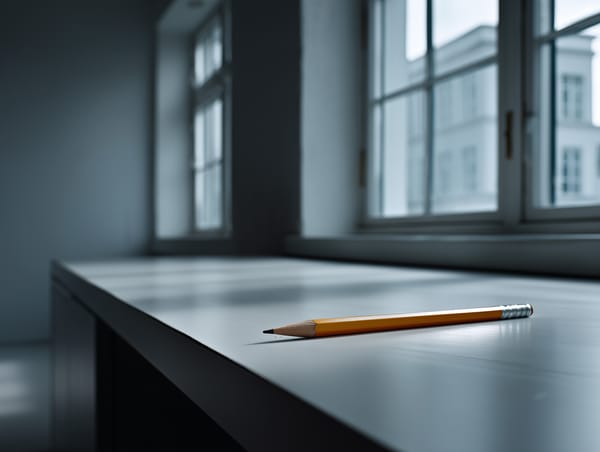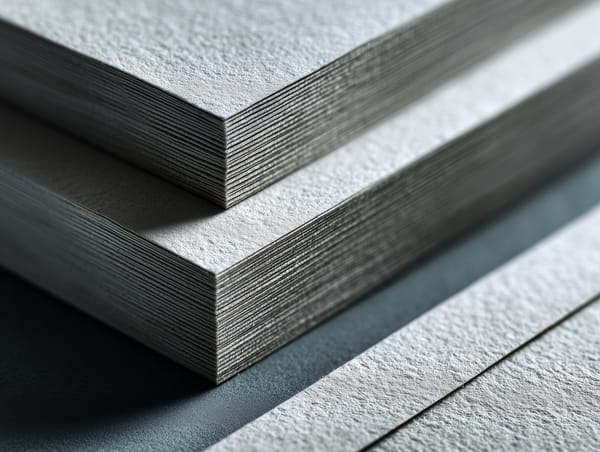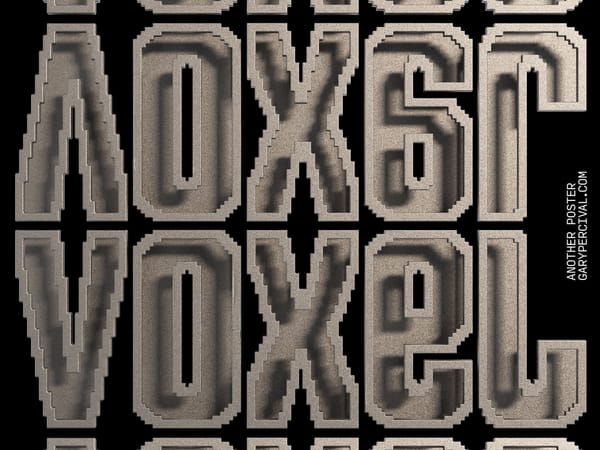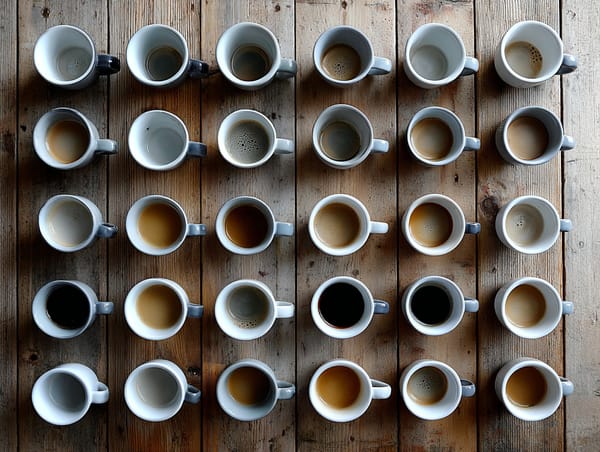How to detox from digital devices and regain creative focus
If you're like most graphic designers, illustrators, or students, you probably spend a lot of time in front of a screen.

If you're like most graphic designers, illustrators, or students, you probably spend a lot of time in front of a screen.
Whether it's working on a project or browsing the internet for inspiration, your digital devices are always with you. But all that screen time can be really draining, especially if you're not taking breaks often enough.
So how can you detox from your devices and regain your creative focus?
Here are a few tips to help get you started:
1. Understand the negative effects of digital devices on creativity
Freelance Graphic Designers work in a highly competitive market, with intense pressure to produce high-quality work.
Freelancers are frequently required to keep up with new trends, technology, and other demands. However, all too often, these demands lead to job burnout or creative stagnation as a result of excessive use of digital devices.
Freelancers who want to boost their creativity should limit their screen time during the day so that they don't overstimulate themselves and take away from good old-fashioned brainstorming sessions done offline.
2. Understand the benefits of digital devices on creativity
Although there can be negative consequences to the overuse of digital devices, they also have a lot of positive effects on creativity.
For starters, they allow Freelance Graphic Designers to connect with other professionals from all around the world and get inspired by their work.
Additionally, online tools and software make it easier than ever for Freelancers to experiment with new ideas and develop their skills.
To get the most out of these tools, Freelancers need to be mindful about how much time they spend using them and try not to get sucked into endless browsing sessions or social media rabbit holes.
3. Create a plan to detox from digital devices
If you feel like you're addicted to your digital devices or you're starting to feel the negative effects of too much screen time, it's important to take a break.
One way to do this is to set aside specific times of day for device use and stick to them.
For example, you might allow yourself to use your phone for an hour in the morning and then again for an hour at night. This will help you avoid using your devices excessively and give you more time to focus on other things.
Another way to detox from your digital devices is to go completely offline for a day or two. This can be difficult, but it will help you reset your mind and body and give you some much-needed time away from screens.

4. Find ways to increase creativity offline
After you've detoxed from your digital devices, it's time to consider ways to boost your creativity offline.
This could include picking up a new hobby, spending time with friends and family, or participating in offline activities that are known to boost creativity, such as journaling, painting, or sculpting.
It's critical to find activities that inspire you and allow you to unwind so that you can return to your work refreshed and ready to create something amazing.
By taking some time to focus on your offline creativity, you will be able to increase your overall creativity and avoid burnout.

5. Use digital devices wisely
After you've taken some time to detox and increase your creativity offline, it's time to reintroduce digital devices into your life. But use them wisely this time.
Be picky about the apps and websites you use, and make sure they're useful. Limit your social media browsing to a few minutes per day to avoid becoming overwhelmed, and avoid working on your computer late at night.
You'll be able to get the most out of digital devices while retaining your creativity if you use them more mindfully.
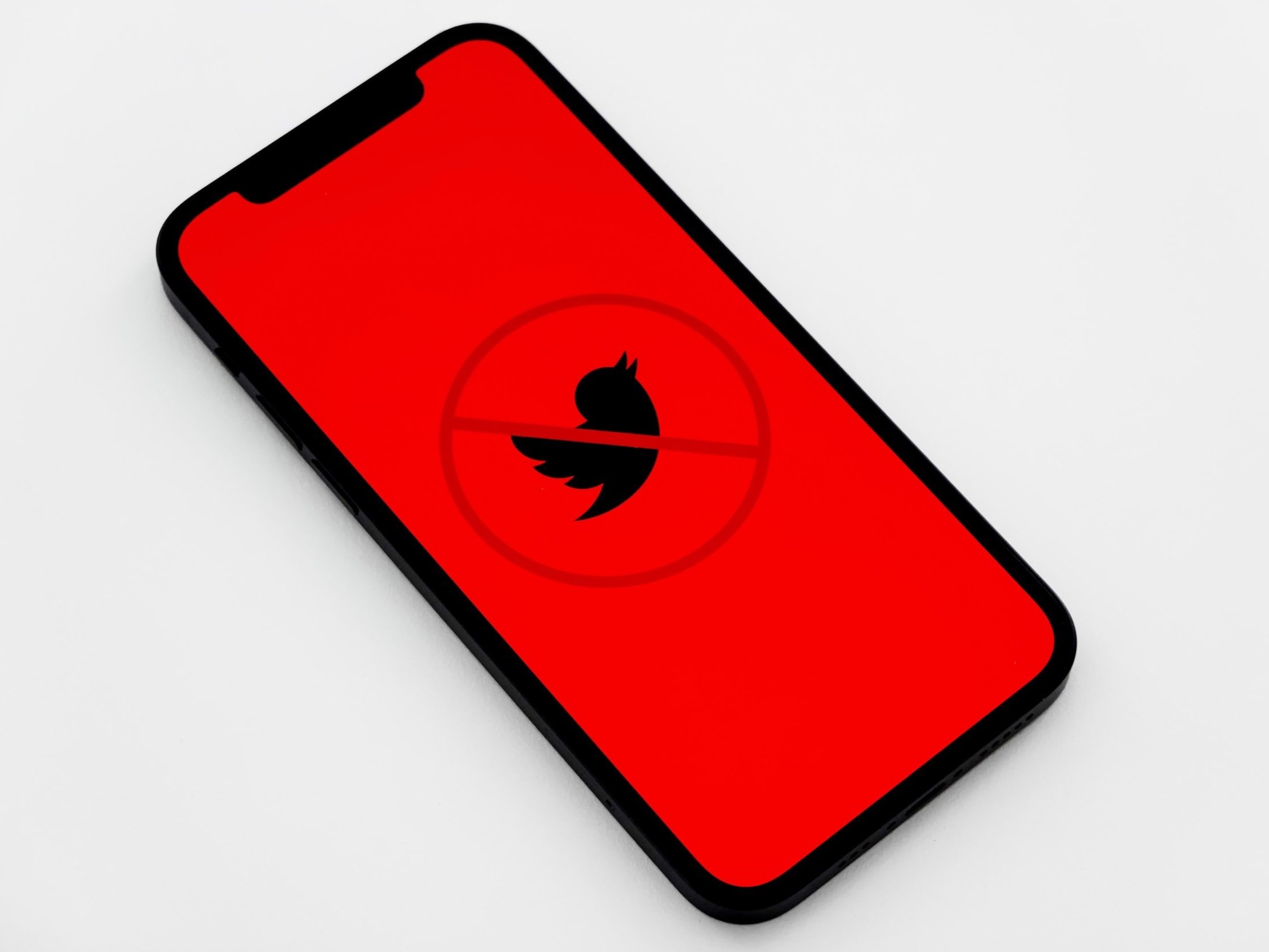
6. Freelance Graphic Designers need to take care of their mental and physical health in order to be productive and creative
To be productive and creative, freelance graphic designers must look after their mental and physical health.
While working from home can be an excellent way to avoid the distractions of an office, it does present some unique challenges. Freelancers must develop strategies for maintaining focus and motivation, or they risk burnout.
Taking breaks from their screens is one of the most critical things freelance graphic designers can do for their health.
Continuously staring at a computer screen can cause eye strain, headaches, and neck pain. Every 20 minutes or so, it's critical to give your eyes a break by looking into the distance for 20 seconds.
Additionally, you should attempt to take a brief break from your work every few hours to allow your mind to rest. Take a walk, listen to music, or simply step away from your desk and inhale deeply.
Another way freelance graphic designers can look after their health is to eat a balanced diet and exercise regularly. Because sitting at a desk all day can result in weight gain and health problems, it is critical to schedule time for exercise.
Eating healthfully is also critical, as it can assist you in remaining focused and energised. Freelancers should avoid processed foods and sugary snacks in favour of fruits, vegetables, and whole grains.

7. Find other activities that can help you regain your creative focus, such as reading, writing, or taking walks outdoors
It's not difficult to find additional activities that can assist you in regaining your creative focus. Indeed, many of these activities are almost certainly already incorporated into your daily routine.
Reading, writing, and taking walks outside can all help clear your mind and allow for the flow of new ideas. Additionally, these activities can help you develop greater focus and concentration.
If you're having difficulty getting started, choose a project or task on which you've been putting off work. Once you begin working on it, you may discover that your creative juices begin to flow more freely.
The trick is to simply keep moving forward and avoid becoming stuck in a rut.

8. Connect with other people in person and talk about things that aren't related to work or technology
It's a well-known fact that excessive time spent on our digital devices can have negative consequences. However, what many people are unaware of is that one of the most effective ways to mitigate those effects is to connect with other people in person and discuss topics unrelated to work or technology.
While this may seem obvious, it is something we frequently overlook in the age of social media and constant connectivity. When we are surrounded by screens constantly, it's easy to lose touch with the real world and the people who inhabit it.
Therefore, make a point of conversing with your friends and family about topics unrelated to work or technology. Go for a run, have a picnic, or simply sit and converse.
You'll be surprised at how rejuvenating it can be to take a break from the digital world and reconnect with the people in your life.

9. Take some time for yourself every day
In today's world, it's easy to get caught up in the hustle and bustle of everyday life and forget to take some time for yourself.
But it's important to remember that taking some time for yourself is essential for maintaining your mental health and well-being. So make a point to take some time for yourself every day. Maybe that means learning something new, going to the gym, or taking a yoga class.
Whatever it is, make sure that you schedule some time for yourself each day so that you can relax and rejuvenate.

10. Find a hobby
One of the best ways to combat job burnout and lack of creativity is to find a hobby.
When we're constantly focused on work, it's easy to lose sight of the things that we enjoy doing outside of work. But hobbies are a great way to express your creative side and relieve some of the stress that comes with work.
So find a hobby that you enjoy and make time for it each week. Whether it's mountain biking, golfing, gardening, or cooking, there's sure to be a hobby out there that's perfect for you. And who knows, you may even find that your hobby can lead to a new career.

11. Get enough sleep
It's no secret that getting a good night's sleep is essential for overall health and well-being.
But what you may not know is that it's also crucial for creativity and productivity.
Research shows that people who don't get enough sleep are less productive and more stressed out than those who do. So how much sleep should you be getting? Most experts recommend between 7 and 8 hours per night.
So, try to sleep and wake up at the same time every day, avoid using electronic devices, caffeine and alcohol before bed, establish a regular bedtime routine, keep your bedroom cool and dark, and practice some relaxation techniques before bed.

12. Experiment with various methods until you find the one that works best for you
How do you get your creative juices flowing when you don't seem to have enough time?
Freelance graphic designers have some of the busiest schedules, but they must also be creative. Freelancers are frequently busier than ever, but their creativity suffers as a result.
Fortunately, there are numerous ways to boost productivity and make time for creativity in an increasingly hectic workday.
Experiment with various methods until you find the one that works best for you!
- Include pauses: You may feel guilty taking regular breaks from your computer screen, but doing so will help you stay focused on tasks during periods of intense concentration. Breaks should not last more than 20 minutes, or fatigue will set in.
- Rearrange your workspace: If you've been staring at the same wall for hours, switching to a different room or even going outside for some fresh air can help.
- Sleep for a while: A quick power nap can help refresh your mind and provide you with the energy you need to get through the rest of your day. Just make sure you don't sleep for more than 30 minutes to avoid falling into a deep sleep state.
- Experiment with different lighting: If your office's fluorescent lights are giving you a headache, try working near a window or invest in a desk lamp with adjustable light intensity.
- Utilise scent: Certain scents can help you improve your mood and focus. Some people prefer citrus or minty scents to be invigorating, while others prefer lavender or chamomile to be calming.
- Purchase a good chair: Because you will be sitting for extended periods of time, it is critical that you have a comfortable chair that supports your back and neck.
- Put on headphones: If you need to block out distractions, put on some headphones and listen to some soothing music or white noise. This can assist you in focusing on the task at hand and blocking out any distractions.
- Drink a lot of water: It is critical to stay hydrated in order to maintain focus and avoid fatigue. Drink plenty of water throughout the day and keep a water bottle close to your workspace.
- Set attainable goals: Trying to accomplish too much in a single day can result in frustration and overwhelm. Set realistic goals for what you can achieve and divide tasks into smaller chunks to make them more manageable.
You'll be surprised at how much better you feel after a digital detox.
We've examined several ways in which our digital devices can have a negative impact on our lives in this article. We are so reliant on them that we frequently fail to take a step back and consider how they may be causing us harm.
However, it is critical to do so. If you're experiencing job burnout or a lack of creativity, it may be time to unplug for a while and get back to basics.
Subscribe to my newsletter below and I'll send you some helpful tips on productivity and freelancing.
